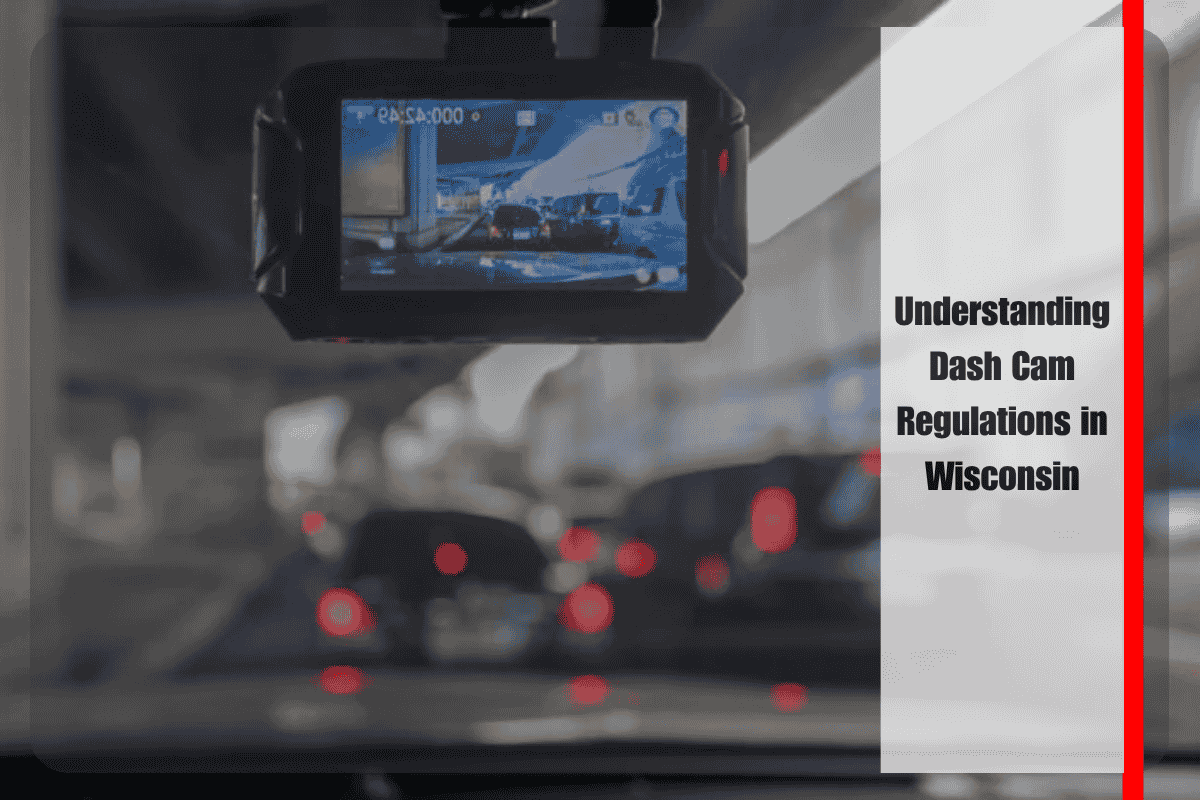Dash cams have become a popular tool for drivers, helping to document their journeys, capture accidents, and even provide evidence in legal situations. However, if you’re thinking of installing a dash cam in your vehicle in Wisconsin, it’s important to understand the state’s regulations and how they could impact your use of the device. While dash cams are generally legal, there are certain guidelines and considerations you should be aware of to ensure you stay within the law.
Are Dash Cams Legal in Wisconsin?
Yes, dash cams are legal to use in Wisconsin. There is no state law that specifically prohibits the use of dash cams in vehicles. In fact, many people use them to protect themselves in case of accidents, disputes, or to monitor driving behavior. Dash cams can be beneficial in various situations, such as providing evidence in a traffic accident or recording police interactions. However, it’s important to ensure that the way you use the dash cam doesn’t violate any other laws in the state, especially those concerning privacy or obstruction.
Privacy Concerns with Dash Cams in Wisconsin
One of the key issues to be aware of when using a dash cam in Wisconsin is privacy. While there are no specific laws against recording video from a dash cam, you need to be mindful of how the footage is captured. In Wisconsin, as in many other states, it is illegal to record audio without the consent of the individuals involved. This is based on the state’s wiretapping laws, which require that you obtain consent before recording conversations in which people have a reasonable expectation of privacy.
If your dash cam records both video and audio, it’s important to ensure that you are not violating Wisconsin’s wiretap laws. To stay within the law, it’s advisable to disable the audio recording feature on your dash cam if you plan on using it in situations where conversations may be captured.
Where Can You Mount a Dash Cam?
While using a dash cam is legal, there are regulations regarding where you can mount it in your vehicle. Wisconsin law requires that any objects placed on your windshield must not obstruct the driver’s view. If a dash cam obstructs your line of sight, it could be considered a violation of the law. For safety reasons, you should mount your dash cam in a position that does not block your view of the road or interfere with the vehicle’s operation.
Typically, dash cams are mounted on the windshield, behind the rearview mirror, or on the dashboard. These are common and safe locations that do not obstruct the driver’s view. Make sure the dash cam is installed in a way that allows you to drive safely without any distractions.
How Dash Cams Can Be Used in Legal Situations
Dash cams can be valuable evidence in legal situations. In Wisconsin, footage from a dash cam can be used in court as evidence in traffic accident claims or disputes with other drivers or law enforcement officers. For example, if you’re involved in an accident and the other driver disputes the details of what happened, dash cam footage can provide an accurate, unbiased account of the event.
Additionally, dash cam footage can be used in situations involving police encounters. If you’re pulled over by law enforcement, the footage can serve as evidence of what occurred during the stop, potentially helping to clarify the situation if there is any dispute over the events.
However, it’s important to note that while dash cam footage can be used as evidence, it is still subject to the same rules of evidence as other types of recordings. For example, if the video or audio is obtained illegally or in violation of privacy laws, it may not be admissible in court.
Dash Cams and Law Enforcement Interactions
In Wisconsin, there are no specific laws prohibiting the recording of police officers during interactions, but it is important to be mindful of how and when you record. In general, recording police officers in public places is allowed, as they do not have a reasonable expectation of privacy when they are performing their official duties. However, you should ensure that your dash cam does not interfere with the officer’s duties or create a situation where the officer feels threatened or distracted.
While recording police interactions is legal, it is advisable to be respectful and not obstruct or interfere with the officer’s actions. Avoid using the dash cam to provoke confrontations or escalate a situation. If you are unsure about the legality of recording in a specific situation, it’s best to consult with a legal professional to avoid any potential legal issues.
In Wisconsin, using a dash cam in your vehicle is generally legal, but there are important regulations and considerations to keep in mind. Ensure that your dash cam does not obstruct your view while driving and be mindful of privacy laws, particularly regarding audio recordings. Dash cam footage can be valuable evidence in legal situations, such as traffic accidents or disputes with law enforcement, but it must be used responsibly and in compliance with the law. By understanding these regulations, you can safely use your dash cam and protect yourself in various situations.
Sources
[1] https://www.ddpai.com/blog/dash-cam-laws/
[2] https://www.expertmarket.com/dash-cams/dash-cam-laws-by-state
[3] https://docs.legis.wisconsin.gov/document/proposaltext/2021/REG/AB465,4,13
[4] https://matrackinc.com/dash-cam-laws-by-states/
[5] https://bosshardparkelaw.com/blog/using-dashcam-footage-in-car-accident-claims/












